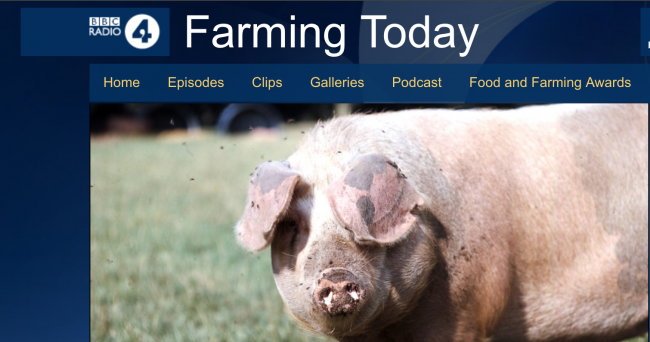The spotlight on pig welfare shows no sign of dimming.
In this (April Pig World) edition alone, we report on the Co-op’s decision to switch to 100% outdoor-bred pork; Wayland’s announcement that all its sows are moving outdoors; calls for method of production (MoP) labelling; questions over the inclusion of slatted systems and farrowing crates in Red Tractor’s standards stemming from Farming Today’s ‘Pig Week’ and calls for UK farmers to move away from farrowing crates at a Bristol conference.
All against the backdrop of the Government’s plans to use Brexit to further enhance our animal welfare standards.
It is all, seemingly, a reflection of growing consumer and media interest, partly driven by animal welfare campaign groups, in how farm animals, and particularly pigs, are bred and reared.
The Co-op’s move is interesting. It is striking that the products will be sold in the standard range – a clear attempt to show that ‘high welfare’ outdoor production doesn’t have to come at a cost to consumers.
The Co-op was at pains to say the move is about pig welfare, rather than the bottom line – but it is clearly hoping it will earn more traction among shoppers drawn to its ‘ethical values’. While, in many ways, the initiative sends out a positive message about British pork to consumers, the context needs to be clarified, as I tried to do when Farming Today picked my brains on the subject.
Some farmers can produce pigs outdoors. Others can’t. Some retailers can source all their pork from outdoor-bred pigs. Larger or discount ones can’t because the supply isn’t there or the price isn’t right.
The key messages, as set out by the NPA are, firstly, that the diversity of the UK’s pig systems is one of the industry’s greatest strengths, giving consumers choice and meeting demand at all price points, including for those not interested whether sows live indoors or out.
And, secondly, that consumers can expect high welfare, food safety and traceability standards from indoor pigs, too.
Much will depend on how transparent the industry wants to be – and many within it are wary, for obvious reasons. The Morgans did a great job hosting ‘Pig Week’ in arctic Yorkshire weather.
Their honesty and desire to educate won over many inside and outside the industry, but also put the spotlight on the use of slats and farrowing crates on Red Tractor farms.
This is the dilemma the industry faces, particularly as calls grow for MoP labelling, a policy Defra Secretary Michael Gove is clearly very keen on. The scrutiny is not going away and the industry will increasingly need to have our answers ready.
While there will always be different views within the industry, most agree that the current diverse structure is mutually beneficial. And the last thing anybody needs is for parts of it to be ushered through the door in a way that only leaves it open for cheap imports.




